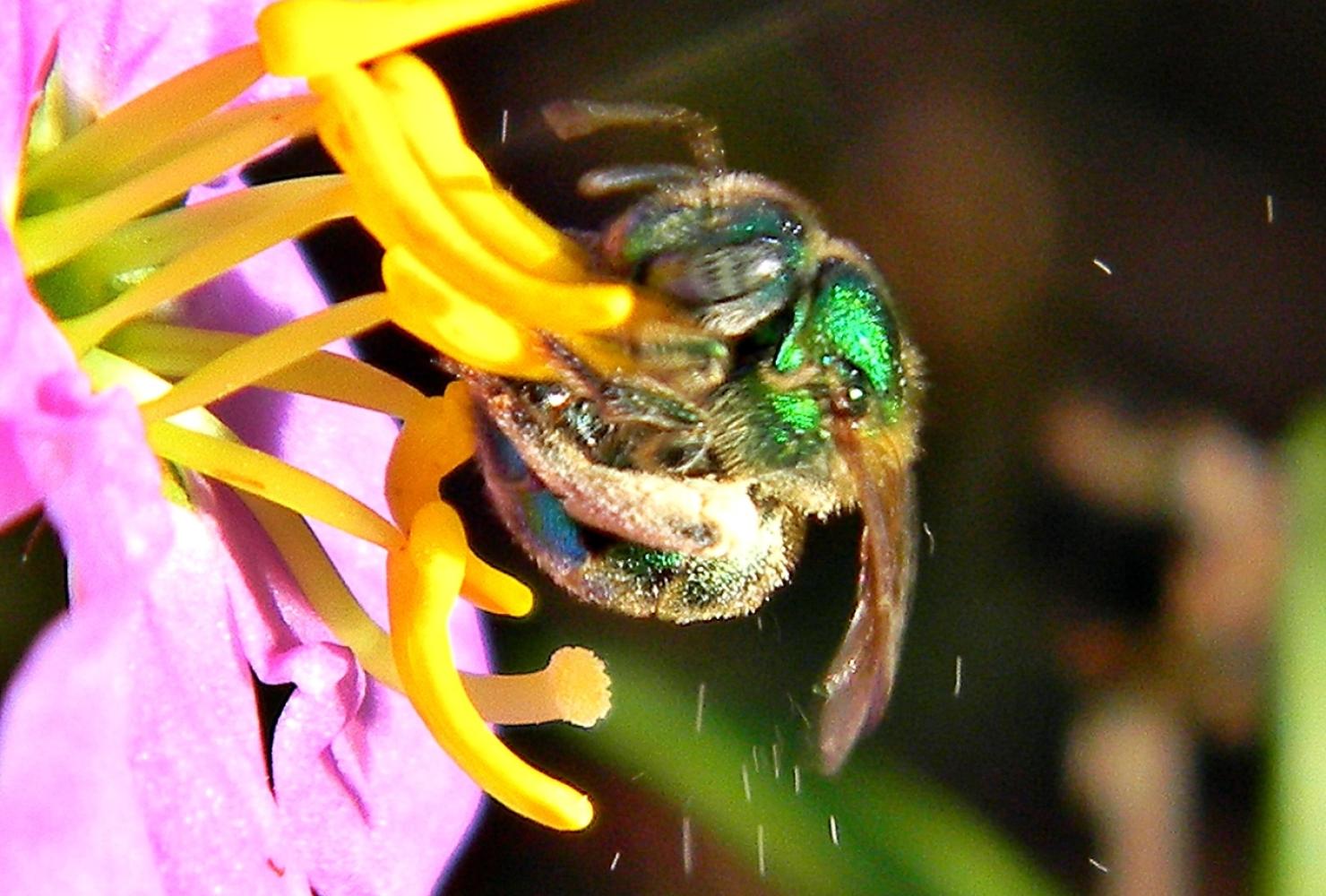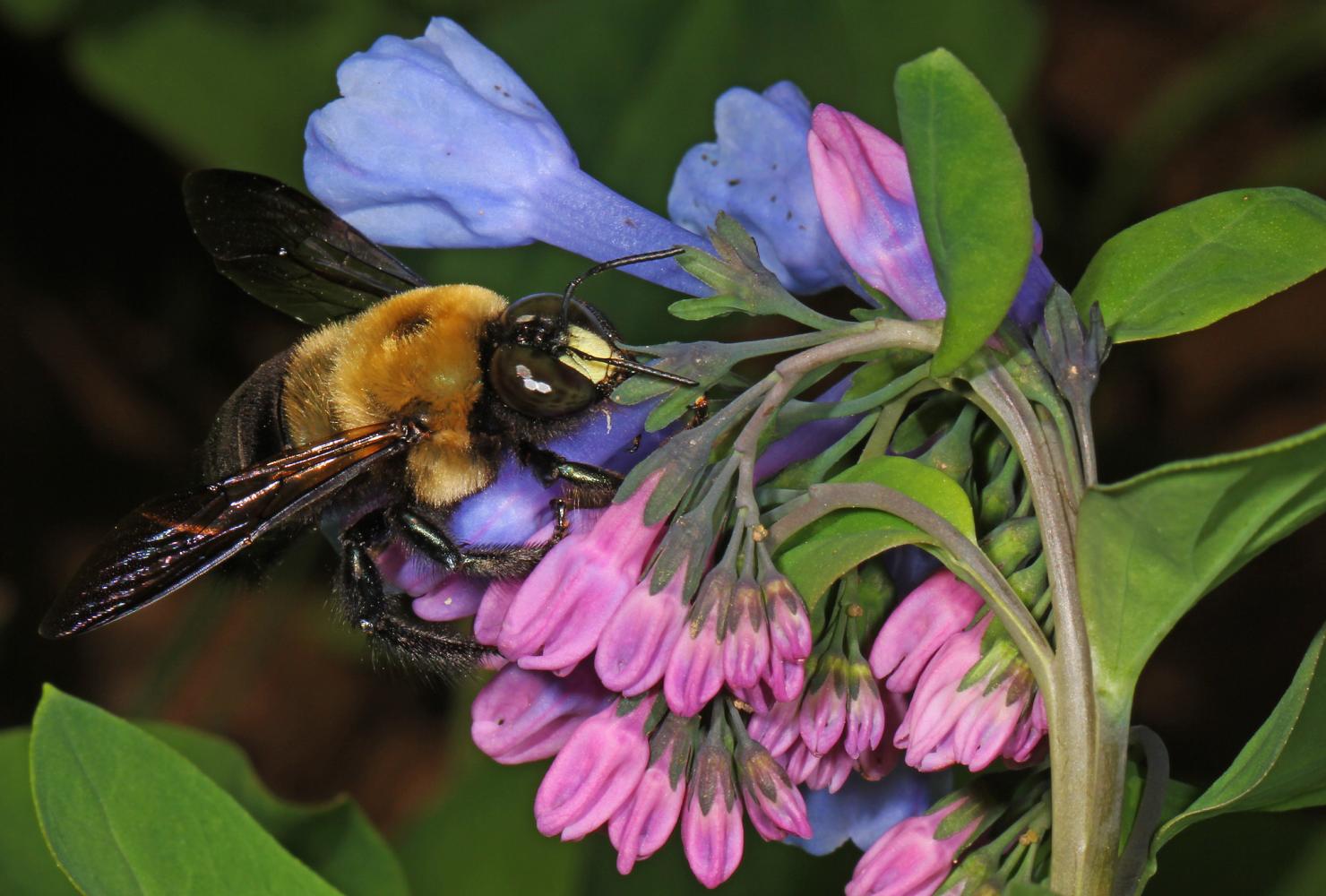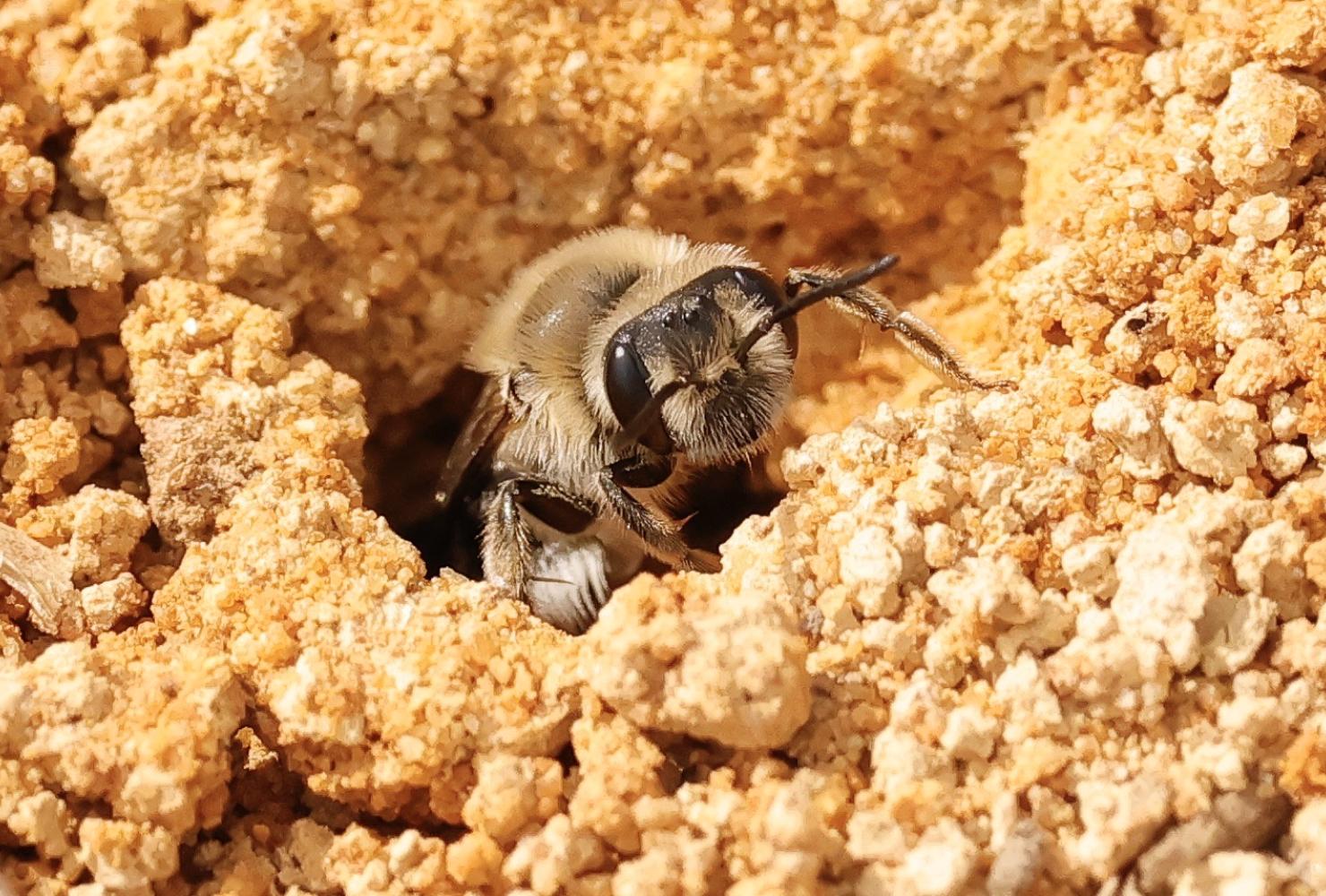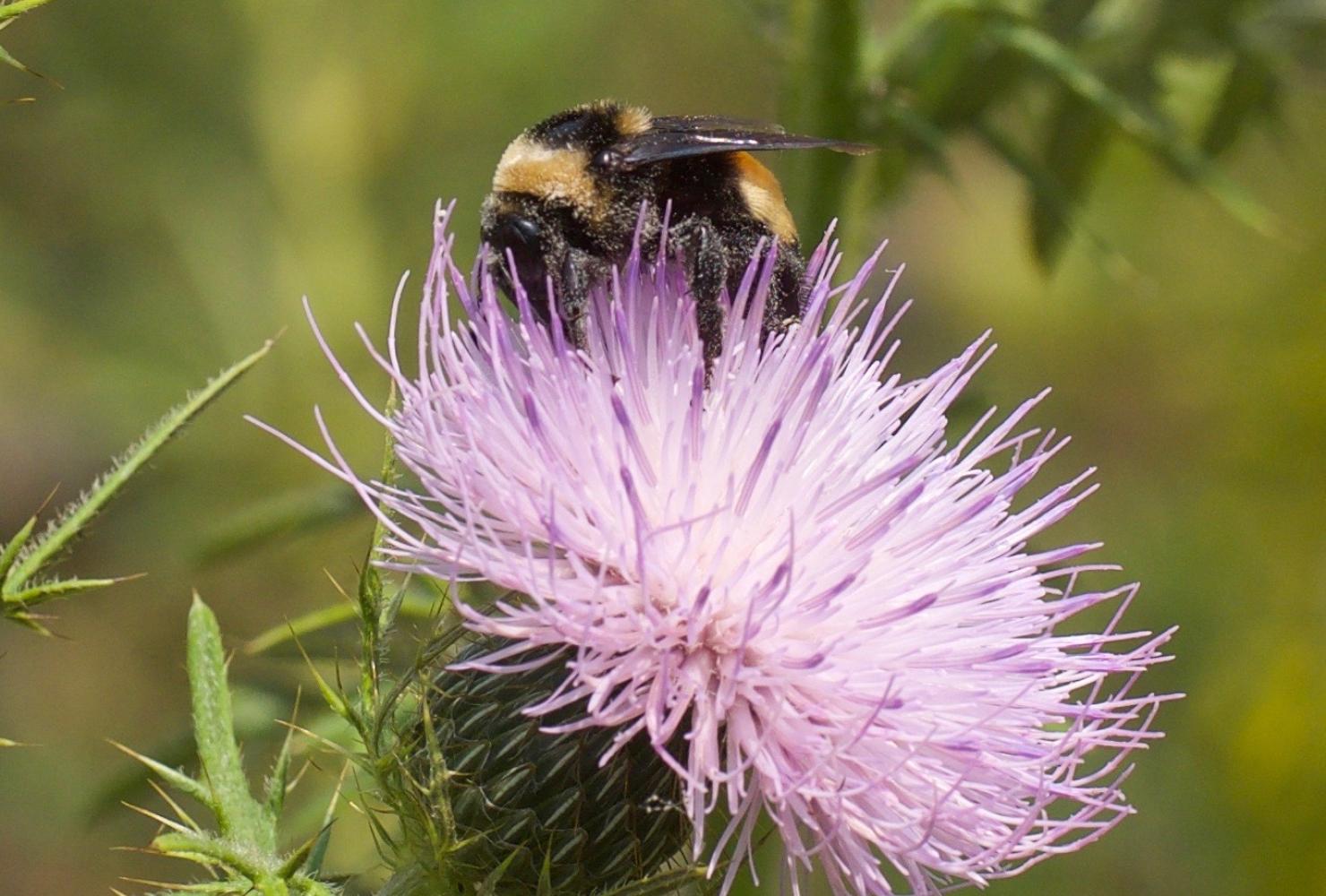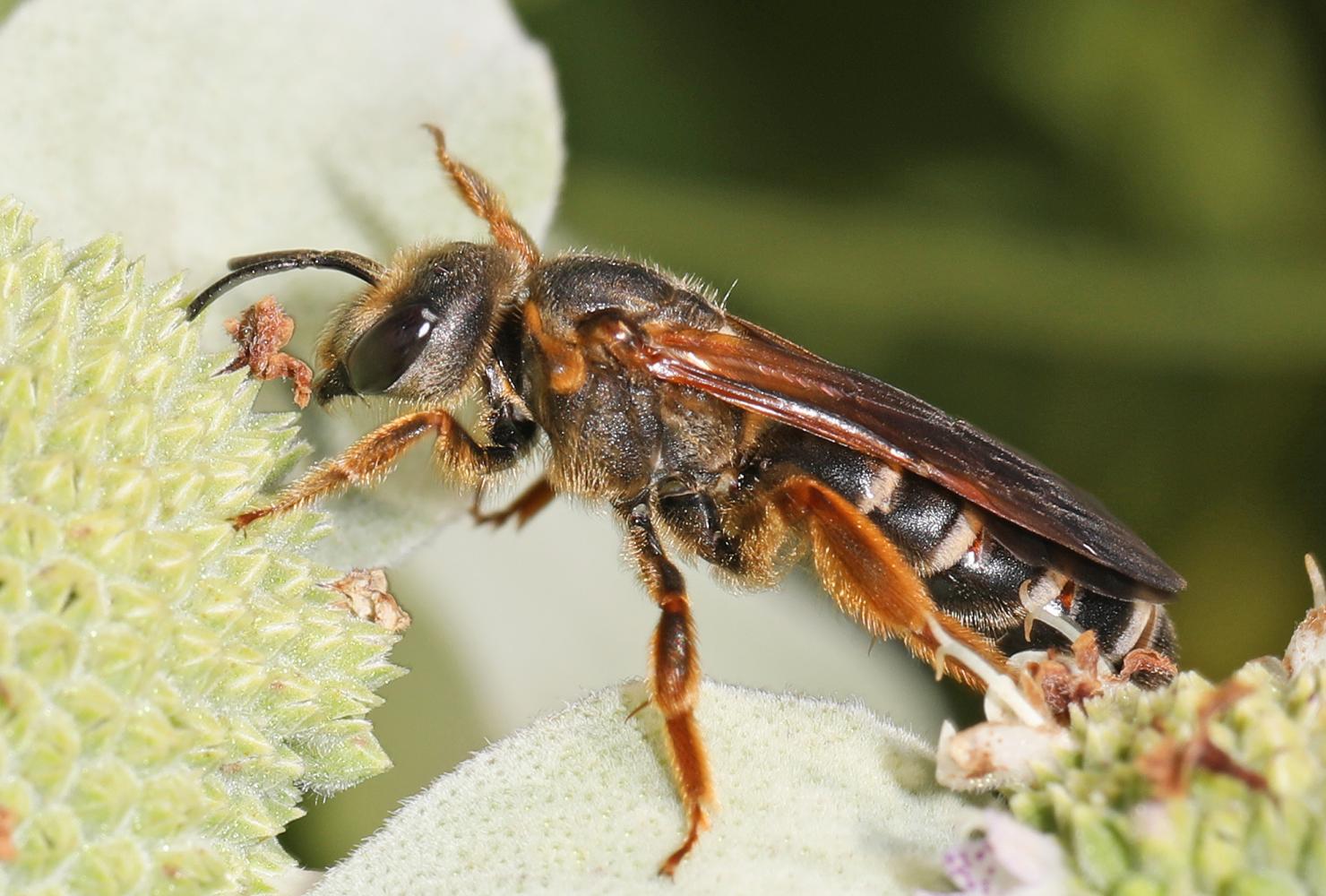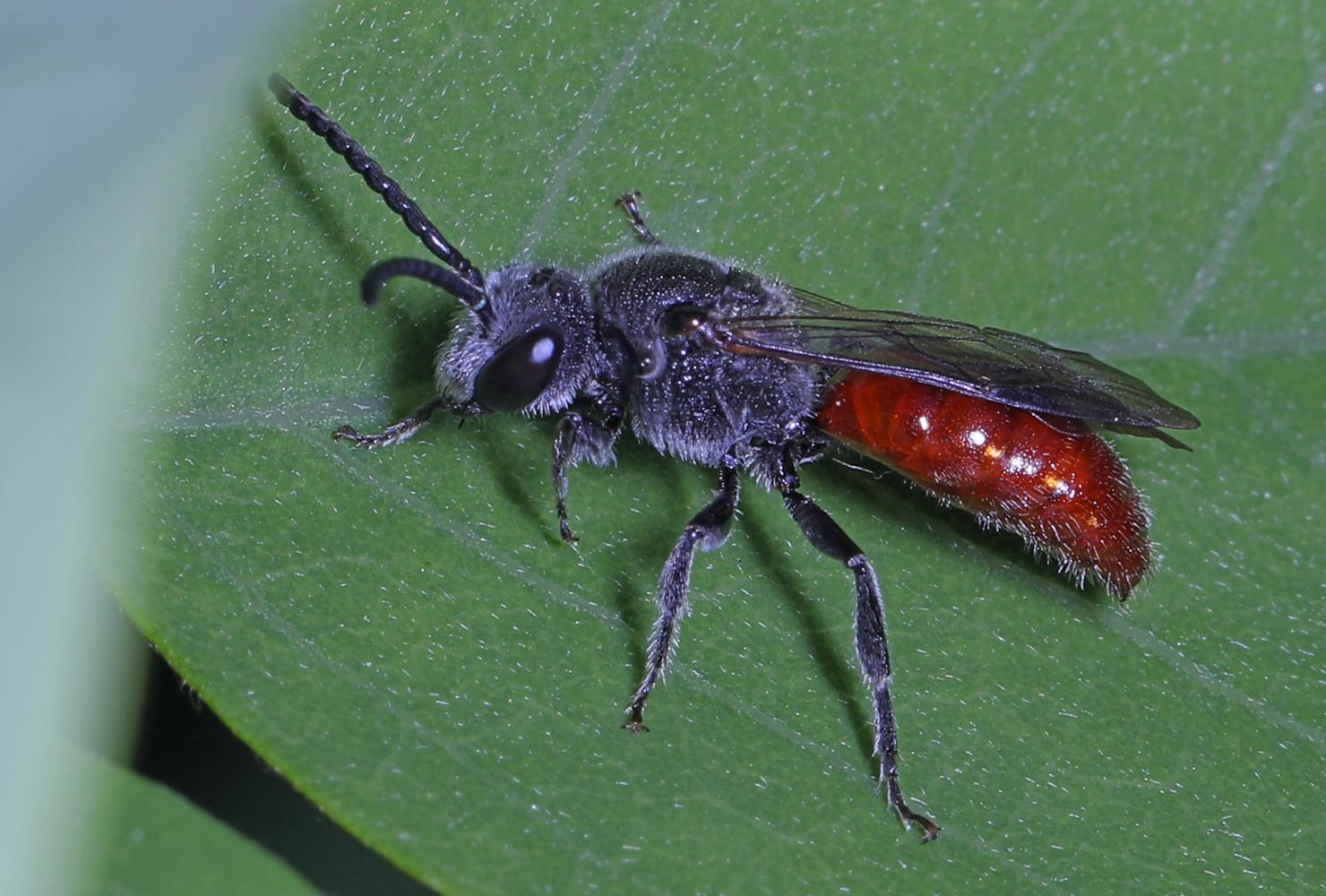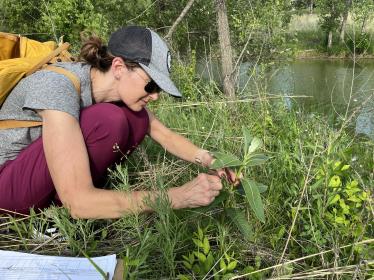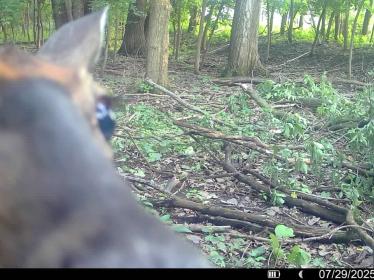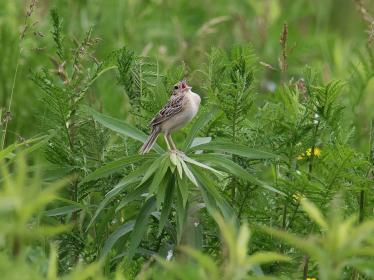Wild, weird and wonderful: The peculiarities of Minnesota's native bees
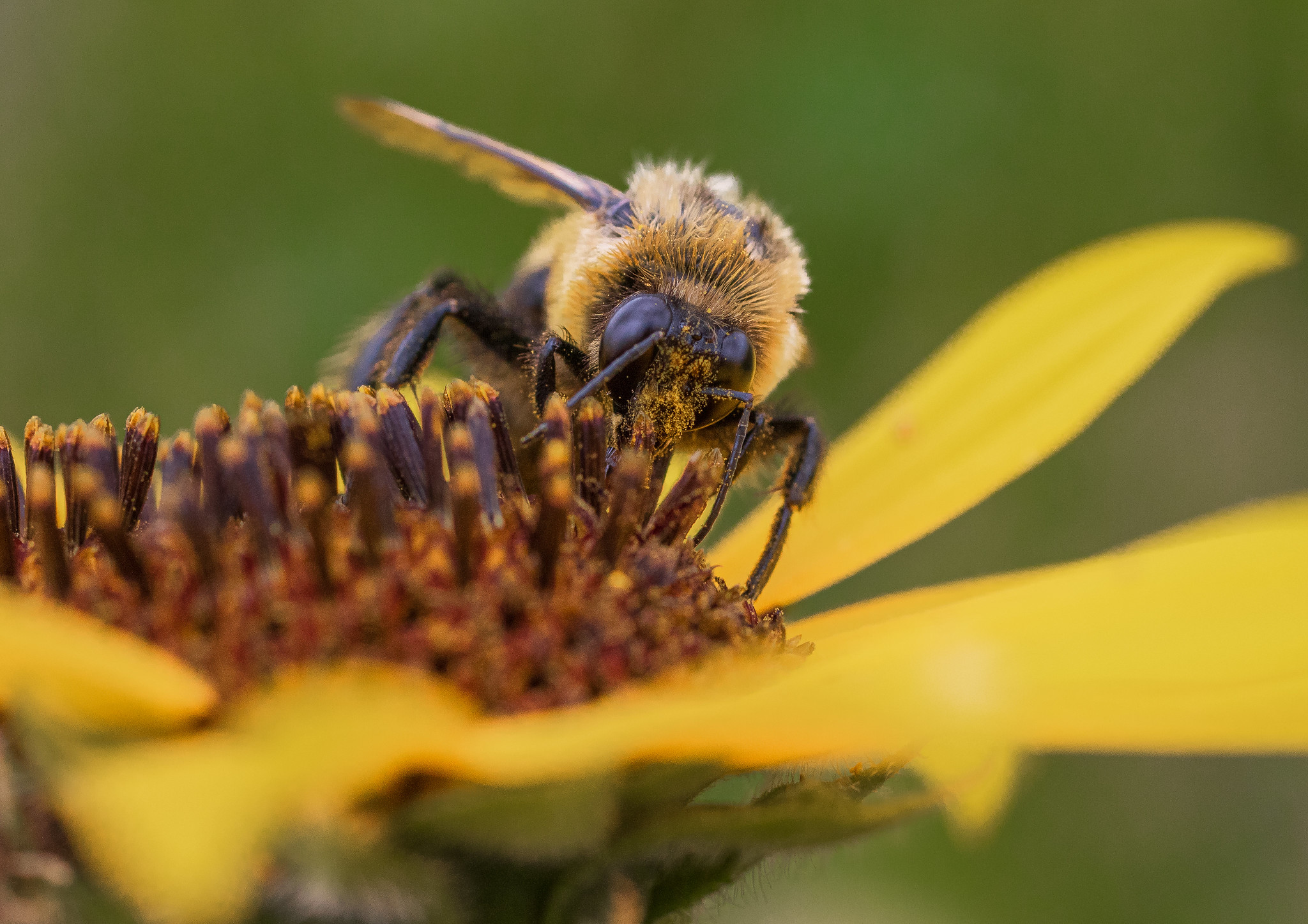
We've got a lot of native bees here in Minnesota. Get to know some of the traits and behaviors that make each stand out. (Photo by Mike Budd/USFWS)
Dr. Julia Leone thinks about bees quite a bit.
As FMR's first dedicated on-staff pollinator biologist, knowing the latest melittology buzz is her job. She spends many a summer day in the field searching for, catching, observing and releasing these astonishing little insects, all in service of protecting them and their habitat, allowing them to flourish. She can talk about bees and their eyebrow hair, their tongue lengths, their travel tendencies. She uses terms like "famous bee nerd photo" with sincerity and oversees important pollinator research every year using only non-lethal collection methods.
Never before, however, had she considered the query I put to her when we first sat down to talk about Minnesota's bees:
Do bees have personalities?
"Oh. That's such a fun question. It's the kind of thing I'd never think of asking," she replied, then paused to consider. "I would say yes, in a sense. Maybe not on an individual bee-to-bee level, like we'd think of with humans. But there are certain species or genera that have a distinct combination of behaviors and preferences and traits that, together, form something like a personality."
There are big-bodied bees that seem to lumber through the air, and bees that are so small they can’t be reliably ID’ed by field observation. Bees that remain on guard, patrolling around their nest to keep all visitors away, and gentle bees that may even land on your skin looking for a friendly nutrient boost. Bees that breezily feed on every flower they come across (generalists), and bees that get nutrients from one specific flower at one specific time of year (specialists). There are bees that sport bold, black and yellow stripes as if from the pages of an illustrated children’s book, and bees whose iridescent green carapaces glint like metal in the sun.
These distinct behaviors speak to the astonishing bee diversity that can be found in Minnesota. While people are most likely to be familiar with the "big three" bumble bees — common eastern, two-spotted and brown-belted — they make up just a sliver of the more than 500 bee species native to the state.
Our bees can be weird, they can be wild. But they are all wonderful.
Get to know some amazing native bee behaviors
Learn how FMR is becoming a powerhouse for pollinator protection.
Want to know more about how you can help Minnesota's bees (and other native pollinators)?
Sign up for a volunteer restoration event, help us advocate for policies that will protect these vital insects and take steps at home to provide pockets of quality habitat.
